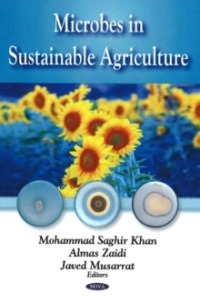
Liknande böcker
Bacillus thuringiensis : Biological Characteristics, Toxicological Effects & Environmental Implications
Bok av Robert Belanger
In Chapter One, Andre L de A Melo, Ph.D. discusses the spore-forming bacterium Bacillus thuringiensis and its uses as a bio-insecticide, also touching on ways to combat insect resistance. In Chapter Two, Karim Ennouri proposes the bacterium Bacillus thuringiensis as an important biopesticide because of the entomopathogenic effect of delta-endtoxins as well as its efficiency against insects resistant to chemical insecticides. In conclusion, Rafael C Lajmanovich, Candela S Martinuzzi, Carlina Colussi, Paola M Peltzer, Agustin Basso, Andres M Attademo, and Lucila M Curi present a study exploring the impact of a GM Bt-soybean-based diet, as opposed to a lettuce diet, on tadpoles.







